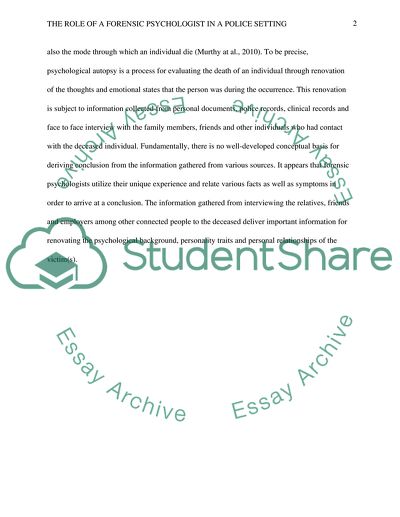Cite this document
(“The Role of a Forensic Psychologist in a Police Setting Term Paper”, n.d.)
The Role of a Forensic Psychologist in a Police Setting Term Paper. Retrieved from https://studentshare.org/psychology/1649945-the-role-of-a-forensic-psychologist-in-a-police-setting
The Role of a Forensic Psychologist in a Police Setting Term Paper. Retrieved from https://studentshare.org/psychology/1649945-the-role-of-a-forensic-psychologist-in-a-police-setting
(The Role of a Forensic Psychologist in a Police Setting Term Paper)
The Role of a Forensic Psychologist in a Police Setting Term Paper. https://studentshare.org/psychology/1649945-the-role-of-a-forensic-psychologist-in-a-police-setting.
The Role of a Forensic Psychologist in a Police Setting Term Paper. https://studentshare.org/psychology/1649945-the-role-of-a-forensic-psychologist-in-a-police-setting.
“The Role of a Forensic Psychologist in a Police Setting Term Paper”, n.d. https://studentshare.org/psychology/1649945-the-role-of-a-forensic-psychologist-in-a-police-setting.


